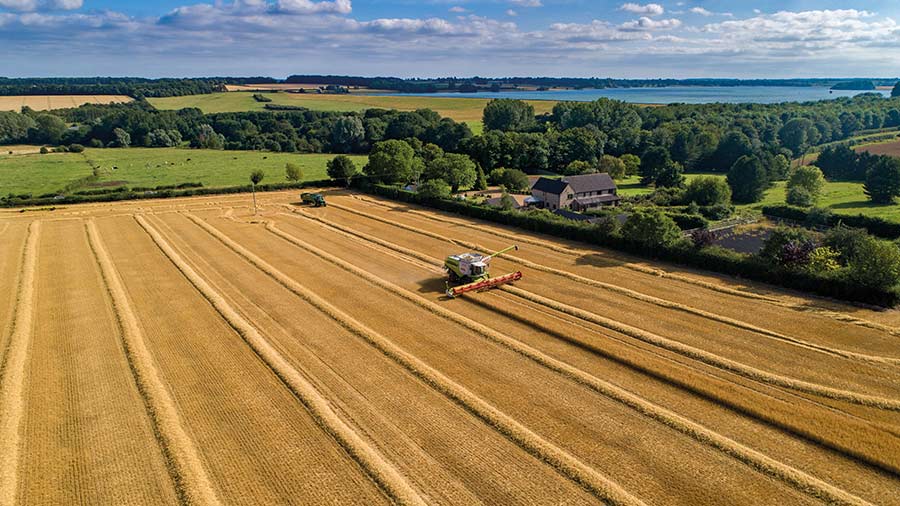Opinion: War in Ukraine is no excuse to abandon green focus
 © Tim Scrivener
© Tim Scrivener The tragic events in Ukraine have inadvertently exposed huge flaws in the UK farming system, not least our heavy reliance on imports such as fuel and fertiliser, which are often environmentally damaging, finite and at risk from climate change.
Yet there is a warped narrative doing the rounds – one that is being jumped on by politicians to curry favour with farmers – which calls for a halt to the Agricultural Transition Plan that would wean farmers off payments for simply owning or managing land.
See also: Government ignoring food security warning signs
About the author

Craig Bennett is the chief executive of The Wildlife Trusts.
Here he sets out why he believes fears about food security should not lead to a U-turn on Defra’s more environmentally friendly farm support policies.
This rhetoric says we need to bolster food security in light of the invasion of Ukraine, so let’s carry on as we are and abandon plans to ensure that farmers are rewarded for high standards in environmental stewardship.
But the argument for the status quo entirely overlooks the two largest threats to UK food security as identified by last year’s UK Food Security Report – climate change and biodiversity loss.
Over our lifetimes, we’ve witnessed a silent revolution across our countryside. Farmland bird numbers have more than halved, the use of pesticides and fertilisers sprayed across our fields has vastly increased, causing a collapse in insects and harm to pollinators.
Agricultural pollution has also played a major role in leaving us with some of the worst-quality rivers in Europe.
Just as important is what is going on underfoot. Soil is a finite but essential resource; it is home to more than 25% of all the biodiversity on Earth.
An estimated 98.8% of all the food calories consumed by humans are derived from soil.
Unfortunately, intensive farming has led to one-quarter of soils worldwide being classified as “highly degraded”, and this is estimated to be reducing global food production by up to 30%.
In England and Wales alone, soil degradation has been calculated to now cost us £1.2bn every year.
The repercussions for rivers, pollinators and the climate have been immense.
The decline in these natural systems in turn significantly affects food production, with farm productivity 21% lower than it could have been without climate change reducing crop yields and nutritional quality.
As the effects of global warming increase in severity, productivity losses and failed harvests are at risk of becoming the rule rather than the exception.
The cause of this destructive decline has been policy. The EU’s Common Agricultural Policy (CAP) incentivised output at the expense of the environment.
Now, policy must support a transition to a better future for farming and for nature. Sacrificing nature by ripping up hedgerows and ploughing every inch of land is the wrong route to food security.
We should be going further and faster to ensure farmers are properly supported to restore nature on their land.
We need more generous payments to reward those who are doing the good stuff, and encourage farmers to reduce their reliance on costly inputs such as pesticides and fertilisers, and instead adopt nature-based solutions such as integrated pest management.
Now is the time to act with the urgency that the crisis demands, by using these payments to support farmers to move towards regenerative agriculture.
We need to farm as if we’re planning to stay here.
Have your say
Agree or disagree with Craig Bennett? Why not share your views on our Farmers Weekly Letters page. Email them to philip.clarke@markallengroup.com
